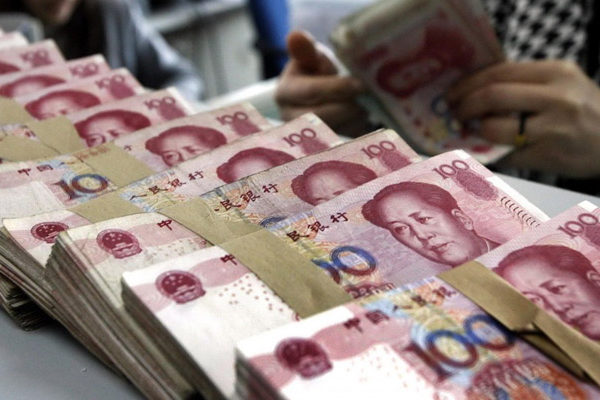- The Hong Kong-Italy double tax treaty that was signed in January 2013 will be effective in Hong Kong from April 1, 2016.
With the entering into force of the Hong Kong-Italy DTT and Hong Kong’s continuous commitment to increased tax transparency and cross-border tax cooperation, it is expected that Hong Kong may be removed from the list of jurisdictions with low level of taxation or lack of adequate exchange of information maintained by the Italian government in the near future. Hong Kong companies investing in Italy can also benefit from the reduced withholding tax rates on dividends, interest, and royalties as well as the permanent establishment protection for business profits under the DTT when it becomes effective in Italy from January 1, 2016.
- A first double tax treaty (DTT) between Cyprus and Iran was signed on August 4, 2015 and has been ratified by Cyprus on August 25, 2015. The treaty will take effect from January 1 in the year following that in which all legal formalities to bring the treaty into force are completed.
The DTT provides for the following withholding tax (WHT) rates on dividends, interest, and royalties:
- 5% on the gross amount of the dividends if the beneficial owner is a company (other than a partnership) which holds directly at least 25% of the capital of the company paying the dividends.
- 10% on the gross amount of the dividends in all other cases.
- 5% on interest (with the exception of interest derived by certain national or local government organizations for which no WHT applies).
- 6% on royalties in all cases. Regarding capital gains, under the DTT Cyprus retains the taxation rights on disposals of shares in Iranian companies except in the case where more than 50% of the value of the shares is derived directly from immovable property situated in Iran.
This new DTT is expected to open the way for new investment opportunities and trade relations between Cyprus and Iran. We note that regardless of the WHT on dividends and interest provided for in the DTT, Cyprus domestic law provides unconditionally for no Cyprus WHT on dividend and interest payments to non-Cyprus tax residents. Further, irrespective of the WHT on royalties provided for in the DTT, the Cyprus domestic law only applies WHT on payments to non-Cyprus tax residents in cases where the royalty relates to rights used within Cyprus.
- Agreement signed with Taiwan for the avoidance of double taxation and enhanced collaboration in tax matters On August 25, 2015, Mainland China and Taiwan signed a breakthrough Agreement for the Avoidance of Double Taxation and Enhanced Collaboration in Tax Matters (Cross-strait DTT). The agreement mainly follows the Organization for Economic Co-operation and Development (OECD) Model Convention with the following key features:
Applicable scope of the DTT
Due to historical reasons, investments by Taiwan investors into mainland China were commonly structured through a company located in a third jurisdiction. To address the applicability of the DTT to such indirect investments, the Cross-strait DTT particularly provides that where the effective management of a third-jurisdiction incorporated company is situated in one of the contracting parties, it could be recognized as the tax resident of that party.
Permanent establishment (PE)
The time threshold for construction and installation projects to create a PE is 12 months, while that for the provision of services is a period or periods aggregating 183 days or more within any 12-month period.
Passive income/capital gains
- Dividends: A 5% preferential withholding income tax (WHT) rate applies in the situation where the recipient is a company which directly holds at least 25% of the capital of the company paying the dividends. Otherwise, the WHT rate is 10%.
- Interests: A preferential WHT rate of 7% applies. Meanwhile, interests received by certain governmental departments and institutions, as well as interests on certain recognized loans to promote exports are exempt from WHT.
- Royalties: A preferential WHT rate of 7% applies. It is worth noting that rental payments for the use of industrial, commercial, or scientific equipment are not included in the definition of ‘royalty’ under the DTT.
- Capital gains: The taxation rights on gains derived from equity transfer shall be allocated as follows:
– The taxation rights on the transfer of the equity of a ‘property-rich company’ shall lie with the source jurisdiction.
– For other situations, the taxation rights shall lie with the resident jurisdiction, unless the resident jurisdiction provides tax exemption treatment on such gains and the transferor directly or indirectly holds at least 25% of the equity interests of that company at any time during the 12-month period preceding such transfer.
Shipping and air transport
The DTT clarifies that business profits derived from shipping and air transport, including incidental income derived from businesses associated with shipping and air transport, shall only be subject to tax in the resident jurisdiction. Such exemption treatment not only applies to income tax, but also to business tax, value-added tax (VAT) and other similar taxes.
Provisions of anti-tax avoidance
The DTT includes an anti-treaty abuse clause to counter arrangements or transactions entered into mainly for the purpose of obtaining the tax benefits under the DTT. In addition, the DTT allows both parties to invoke domestic rules against abusive arrangements. The inclusion of these provisions is consistent with the international practice.
Measures to avoid double taxation
According to the DTT, Taiwan residents could claim foreign tax credit (FTC) for the income tax paid in mainland China, which is consistent with Taiwan’s domestic tax law. From the mainland China perspective, the DTT reiterates that the FTC rules are stipulated in mainland China’s domestic tax law. In addition, the qualified shareholding ratio for China tax resident enterprises (TREs) to claim the FTC for the Taiwan tax indirectly borne by the China TREs on their Taiwan-sourced dividends is reduced from 20% to 10%.
Exchange of information (EoI) and collaboration in tax matters
Given the special conditions between mainland China and Taiwan, the DTT largely restricts the scope of EoI, such as no retrospective EoI for information obtained prior to the effective date of the DTT, no automatic EoI or spontaneous EoI, and no application of information exchanged in criminal cases. Meanwhile, the DTT also innovatively includes ‘collaboration in tax matters’ in its title. Specifically, the DTT sets forth a mechanism for the tax authorities across the strait to enhance communication and collaboration, and also introduces, in principle, an article of assistance in tax collection.
Given the special investment structure, and economic and trade relations between mainland China and Taiwan, the DTT provides more favorable treatments compared to other DTTs signed by mainland China, for instance, the allocation of taxation rights on capital gains, the applicability of the DTT to investments in mainland China via a third jurisdiction, etc. The DTT will enter into force after the completion of the ratification procedures by both contracting parties and apply to income derived on and after January 1, of the year following its entry into force. Relevant taxpayers are suggested to study the provisions in the DTT, review their existing contracts and business arrangements, and assess its impacts on their cross-strait businesses and investments. In addition, for Taiwan investors investing in mainland China via the indirect structure, the DTT allows the third-jurisdiction incorporated company to be treated as a Taiwan tax resident based on the principle of ‘place of effective management’. This treatment not only permits such non-Taiwan incorporated companies to be eligible for the DTT, but could also give rise to Taiwan tax consequences. Taiwan investors are suggested to do a comprehensive analysis on the impact before going for the application. Moreover, with the improvement of the cross-strait direct investment, in particular with the conclusion of the DTT, Taiwan investors may review their current investment structure and consider the possibility of restructuring to optimize their structures.





